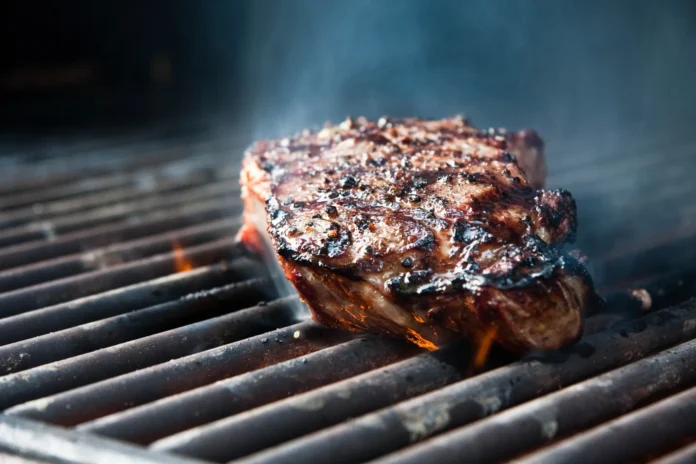For many, the words “BBQ” and “grilling” are used interchangeably. Yet, in the world of outdoor cooking, these two styles are distinct — each with its own techniques, traditions, and taste experiences. Whether you’re slow-smoking ribs over hardwood or searing steaks on high heat, understanding the difference can elevate your outdoor meals to the next level.
This article breaks down the differences between BBQ and grilling, explores cultural nuances across regions, and highlights why cleanliness is just as important as cooking techniques, especially for those who rely on trusted barbecue cleaners to keep their equipment in top shape.
Table of Contents
BBQ vs. Grilling: What’s the Real Difference?
At its core, the main distinction comes down to time, temperature, and technique.
Grilling
Grilling refers to cooking food quickly over high, direct heat, usually between 400°F to 550°F (204°C to 288°C). It’s ideal for foods like steaks, burgers, hot dogs, and vegetables that cook well in minutes and benefit from a quick sear and smoky charm.
Grilling is the go-to method for weeknight dinners and spontaneous cookouts because it’s fast, simple, and delicious.
BBQ (Barbecue)
Barbecue, on the other hand, is low and slow. Traditional BBQ uses indirect heat, often from wood or charcoal, and cooks’ meat at lower temperatures — typically between 225°F to 275°F (107°C to 135°C) — for hours.
This technique is ideal for tougher cuts of meat like brisket, pork shoulder, or ribs. The slow-cooking process breaks down connective tissue and renders fat, resulting in tender, flavorful dishes that are rich in smoke and spice.
Cultural Perspectives: BBQ Around the World
Barbecue isn’t just a cooking method — it’s a cultural identity. Across the globe, regions have developed their own unique approaches to BBQ, influenced by available ingredients, fuel sources, and community traditions.
United States
In the U.S., BBQ is deeply regional:
- Texas: Focuses on beef brisket and dry rubs.
- Carolina: Known for pulling pork with vinegar-based sauces.
- Kansas City: A sweet and tangy tomato-based sauce dominates.
- Memphis: Pork ribs and shoulders are the stars, often served dry or wet.
Argentina
Argentine asado involves open-fire cooking with a wood or charcoal grill called a parrilla. Large cuts of meat are slowly grilled and accompanied by chimichurri sauce.
Korea
Korean BBQ is an interactive experience, with diners grilling marinated meats like bulgogi and galbi at the table. It’s typically served with kimchi, lettuce wraps, and a variety of dipping sauces.
Japan
In Japan, yakitori involves skewered chicken pieces grilled over binchotan charcoal, often seasoned with tare (a sweet soy-based glaze) or salt.
Each culture brings its own flair, and trying different styles is one of the best ways to appreciate the diversity of barbecues around the world.
The Importance of Clean Equipment
Regardless of style or geography, one principle holds true: clean cooking surfaces are essential for great flavor and food safety.
Grills and smokers accumulate:
- Greasy and fat
- Carbon deposits
- Old food particles
- Smoke residue
Left unchecked, these can not only alter the flavor of your food but also pose fire hazards and increase the risk of bacterial contamination.
Barbecue Cleaners: Why Professional Help Matters
Many home chefs understand the joy of outdoor cooking but underestimate the effort required to keep a grill in proper working condition. This is where professional barbecue cleaners come into play.
A seasoned grill cleaner knows how to:
- Safely remove carbon buildup and grease
- Clean burners, grates, and drip trays
- Inspect for rust or damage
- Prolong the life of your grill or smoker
Cleaning isn’t just cosmetic — it’s maintenance that protects your investment and improves the quality of every meal.
BBQ Cleaning in Canada: A Yearly Ritual
In Canada, outdoor cooking is a summer tradition – and whether you’re grilling or slow-cooking BBQ, regular maintenance is key. Companies like ours, specializing in BBQ Cleaning Calgary, know how essential a clean grill is for great flavor and safe cooking.
In northern climates, barbecues often sit unused during the colder months. When spring and summer return, a deep clean is usually necessary before lighting the burners again. Snow, rust, and moisture can all affect performance.
Even for regular users, routine cleaning prevents grease fires, improves heat efficiency, and reduces lingering smells from previously cooked foods.
DIY vs. Professional BBQ Cleaning
While many grill owners attempt cleaning on their own, the process is often time-consuming and messy — especially after months of use. Here’s how DIY compares hiring professional barbecue cleaners:
| Aspect | DIY Cleaning | Professional Cleaning |
|---|---|---|
| Time Required | 2–4 hours | 1–2 hours |
| Thoroughness | Often superficial | Deep, internal clean |
| Tools Needed | Wire brush, degreaser | Commercial-grade tools |
| Results | Inconsistent | Restaurant-level sanitation |
| Convenience | Labor-intensive | Hassle-free |
While there’s satisfaction in DIY, entrusting the job to pros once or twice a year ensures your grill remains safe, clean, and fully functional.
Final Tips: Grill Smarter, Not Harder
To get the most from your BBQ or grill — and reduce how often it needs deep cleaning — follow these best practices:
- Preheat thoroughly: It helps burn off residue.
- Oil the grates: Prevents food from sticking.
- Clean after every use: While the grill is still warm, use a grill brush to remove food bits.
- Use drip trays: They catch excess fat and reduce flare-ups.
- Store properly: Use a cover and protect your grill from the elements.
Conclusion
Whether you’re a weekend griller or a passionate pitmaster, understanding the distinction between BBQ and grilling can transform the way you cook. And while mastering the technique and flavor takes time, one thing is non-negotiable — a clean grill.
Investing in regular maintenance or hiring expert barbecue cleaners ensures every meal is delicious, safe, and true to your chosen style — whether it’s Korean BBQ, American slow-smoked ribs, or a sizzling ribeye hot off the grates.
So, next time you fire up your outdoor kitchen, remember: your culinary journey begins not just with heat and smoke, but with a spotless, well-maintained grill — because flavors starts with clean equipment.



























